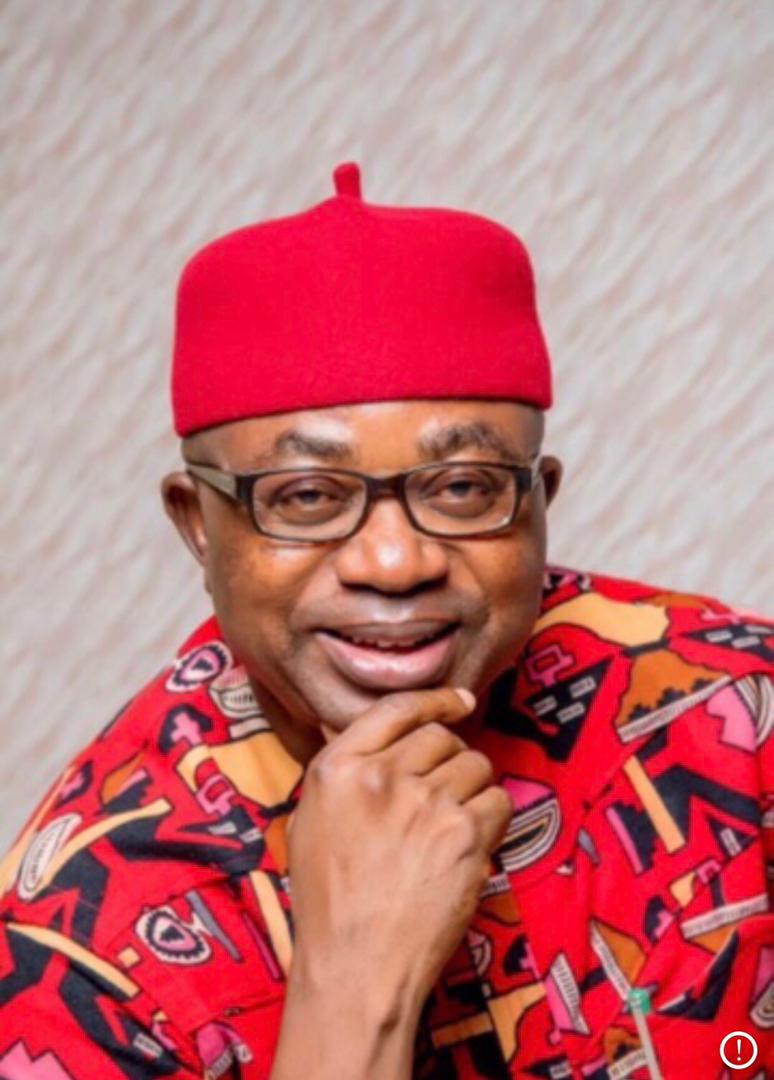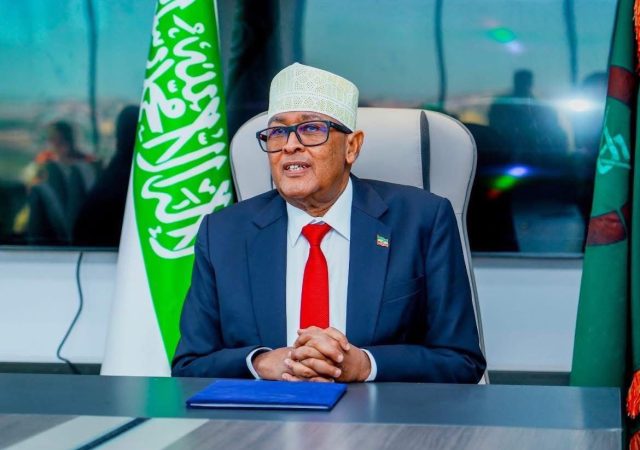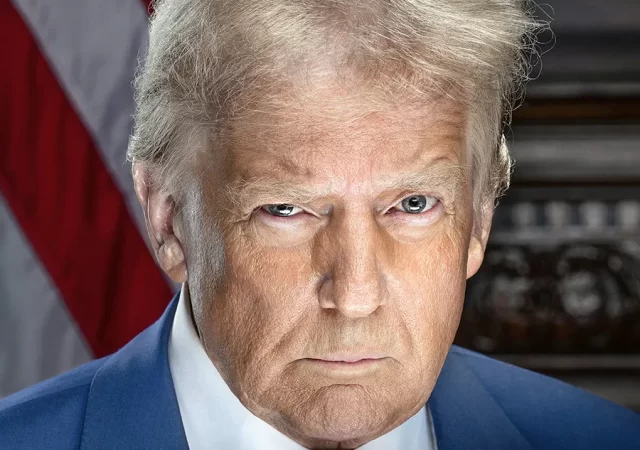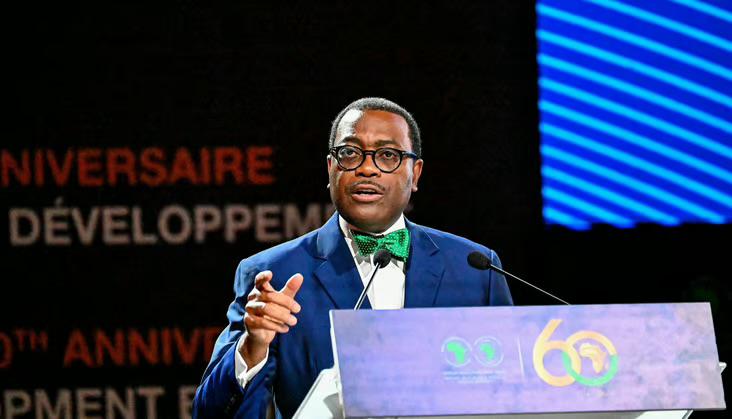
By Collins Nweke
As Dr. Akinwumi Adesina prepares to exit his historic tenure as President of the African Development Bank (AfDB), a careful evaluation of his leadership through the lens of economic diplomacy reveals a transformative impact. But it also leaves a daunting challenge for his successor.
Dr. Adesina assumed office in 2015 with a clear vision:” to Light up and Power Africa, Feed Africa, Industrialize Africa, Integrate Africa, and Improve the Quality of Life for Africans.” His “High 5s” priorities were not mere slogans. They reflected a strategic repositioning of the AfDB as Africa’s premier agent of socio-economic development and regional integration.
From an economic diplomacy perspective, Adesina’s work expanded the AfDB’s influence beyond financing. He championed the African voice in global platforms, forged new alliances with non-traditional partners like South Korea and the Gulf States, and repositioned African development financing as a global public good. His ability to blend technical credibility with charismatic advocacy enabled the AfDB to secure historic capital increases and innovative funding mechanisms, including the pioneering African Financial Alliance on Climate Change.
To be more specific, under Adesina’s leadership, the AfDB achieved the largest capital increase in its history, raising its capital base from $93 billion to $318 billion (2019). That was not just a financial milestone; it was a major act of economic diplomacy, persuading both African and non-African shareholders, including major powers like the U.S., Japan, and Europe, to invest more deeply in Africa’s future, reaffirming the continent’s strategic importance in global development.
In about 3 years of assuming office, Adesina launched the African Investment Forum as a marketplace to connect governments with private investors, shifting the narrative from aid to investment. This platform became a practical engine of economic diplomacy, unlocking billions in investment deals and positioning Africa as a serious destination for global capital.
The Africa Investment Forum has mobilised over $225 billion in investment interest to critical infrastructure and other projects in Africa. A third compelling example is the mobilization of IMF Special Drawing Rights (SDRs) for Climate Financing in 2024. In that groundbreaking initiative, Dr. Adesina spearheaded a collaborative effort with the Inter-American Development Bank to rechannel $20 billion in IMF Special Drawing Rights into hybrid capital bonds. The innovative financial mechanism aims to unlock up to $80 billion for climate-related infrastructure projects across Africa and Latin America. By engaging with countries such as the United States, Canada, Saudi Arabia, Korea, Kuwait, Qatar, and Brazil, Adesina’s diplomatic outreach underscores his commitment to leveraging global financial resources for sustainable development in Africa.
These initiatives exemplify Adesina’s strategic vision in economic diplomacy, blending financial innovation with international collaboration to address pressing climate challenges and infrastructure needs on the continent.
Under Adesina’s leadership, the African Development Bank was ranked as the Best Multilateral Financial Institution in the world. What is more? For two years I n a row, in 2023 and 2024, the African Development Bank was rated as the Most Transparent Financial Institution in the World.
However, his tenure was not without controversy. Allegations of internal governance challenges briefly clouded his first term, although he was cleared and re-elected unanimously. These episodes underline a crucial point: economic diplomacy is as much about maintaining robust internal governance and credibility as it is about winning external battles.
Looking Ahead: The Ideal Successor
As Africa stands at the crossroads of green transitions, demographic pressures, and geopolitical realignments, the AfDB must retain, but also deepen, its strategic relevance. Ensuring policy continuity while injecting fresh vigor demands that Dr. Adesina’s successor embodies specific qualities, credentials, and competencies:
The Diplomatic finesse that has existed in the AfDB since 2015 must be retained as Africa cannot be a Lone Ranger in its efforts to industrialise. The next president must be an adept economic diplomat, capable of navigating complex relationships with member states, donors, and emerging global powers, while safeguarding the AfDB’s independence. Linked to this is a proven development finance expertise. A strong track record in mobilizing resources at scale and structuring innovative financial instruments is non-negotiable. The new leader must understand blended finance, green financing, and sovereign debt sustainability.
A commitment to Pan-Africanism was a hallmark of the Adesina era. Beyond technical skills, his successor must embody an authentic commitment to Africa’s integration and transformation agenda, championing initiatives like the African Continental Free Trade Area (AfCFTA) and regional infrastructure corridors.
Governance and Integrity are essential commodities in the Africa that Dr. Adesina envisions. The internal governance reforms which he has set in motion should continue. The continuity requires a leader known for transparency, accountability, and the ability to nurture a high-performance, meritocratic institutional culture. Visionary leadership must be in the mix. The ability to anticipate megatrends such as climate change, digitalization, migration, and repositioning AfDB as a thought leader in African economic transformation, will be crucial.
Like Adesina, the next president must have global credibility, commanding respect in international financial and political circles, bridging Africa’s priorities with global development agendas such as the SDGs and the Paris Agreement. The African Development Bank, under Dr. Adesina, reaffirmed itself as a powerhouse of economic diplomacy, financing, and advocacy for Africa’s rightful place in the global order. His successor will not only inherit an institution with greater visibility but also greater responsibilities. From the outset, his successor must demonstrate appetite to deliver prosperity, deepen integration, and amplify Africa’s voice on the world stage.
The choice of leadership in the coming months will thus not only determine the Bank’s future but will also signal Africa’s broader ambitions in a rapidly changing world.
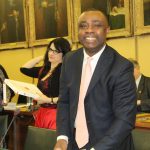 The author, Collins Nweke is a former Green Councillor at Ostend City Council, Belgium, where he served three consecutive terms until December 2024. He is a Fellow of both the Chartered Institute of Public Management of Nigeria and the Institute of Management Consultants. He is also a Distinguished Fellow of the International Association of Research Scholars and Administrators, where he serves on its Governing Council. He writes from Brussels, Belgium.
The author, Collins Nweke is a former Green Councillor at Ostend City Council, Belgium, where he served three consecutive terms until December 2024. He is a Fellow of both the Chartered Institute of Public Management of Nigeria and the Institute of Management Consultants. He is also a Distinguished Fellow of the International Association of Research Scholars and Administrators, where he serves on its Governing Council. He writes from Brussels, Belgium.
LinkedIn: @collinsnweke | X: @collinsnweke | E: admin@collinsnweke.eu | W: www.collinsnweke.eu





